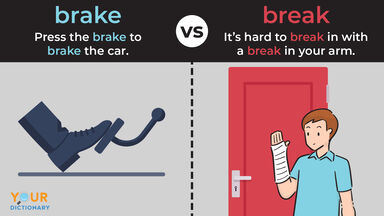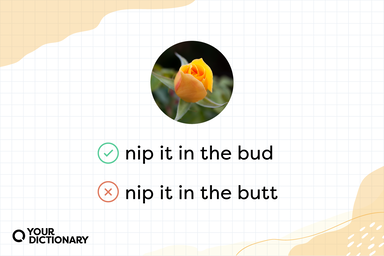Stop Definition
- stopping
- in abeyance
- cessative
Prone to halting or hesitation.
- to apply maximum effort; use every means possible
- to cause to cease; stop; end
- to be ruthlessly resolute in pursuing an end
- to reduce the lens aperture by adjustment of the diaphragm
- to stop for a short stay en route to a place
Idioms, Phrasal Verbs Related to Stop
Origin of Stop
-
From Middle English stoppe, from Old English stoppa (“bucket, pail, a stop"), from Proto-Germanic *stuppô (“vat, vessel"), from Proto-Indo-European *(s)teub- (“to push, hit; stick, stump"). Cognate with Norwegian stopp, stoppa (“deep well, recess"), Middle High German stubech, stübich ("barrel, vat, unit of measure"; > German Stübchen). Related also to Middle Low German stōp (“beaker, flask"), Middle High German stouf (“beaker, flask"), Norwegian staupa (“goblet"), Icelandic staupa (“shot-glass"), Old English stÄ“ap (“a stoup, beaker, drinking vessel, cup, flagon"). Cognate to Albanian shtambë (“amphora, bucket"). See stoup.
From Wiktionary
-
From Middle English stoppen, stoppien, from Old English stoppian (“to stop, close"), from Proto-Germanic *stuppōnÄ… (“to stop, close"), *stuppijanÄ… (“to push, pierce, prick"), from Proto-Indo-European *stÁb(h)-, *stemb(h)- (“to support, stamp, become angry, be amazed"). Cognate with West Frisian stopje (“to stop"), Dutch stoppen (“to stop"), Low German stoppen (“to stop"), German stopfen (“to be filling, stuff"), German stoppen (“to stop"), Danish stoppe (“to stop"), Swedish & Icelandic stoppa (“to stop"), Middle High German stupfen, stüpfen (“to pierce"). More at stuff, stump.
From Wiktionary
-
Alternate etymology derives Proto-Germanic *stuppōnÄ… from an assumed Vulgar Latin *stÅ«pāre, *stuppāre (“to stop up with tow"), from stÅ«pa, stÄ«pa, stuppa (“tow, flax, oakum"), from Ancient Greek στύπη (stýpÄ“), στύππη (stýppÄ“, “tow, flax, oakum"), from Proto-Indo-European *steyÉ™- (“to thicken, clump up, condense"). This derivation, however, is doubtful, as the earliest instances of the Germanic verb do not carry the meaning of "stuff, stop with tow". Rather, these senses developed later in response to influence from similar sounding words in Latin and Romance.
From Wiktionary
Middle English stoppen from Old English -stoppian probably from Vulgar Latin stuppāre to caulk from Latin stuppa tow, broken flax from Greek stuppē
From American Heritage Dictionary of the English Language, 5th Edition
Find Similar Words
Find similar words to stop using the buttons below.





